The Ethiopian Parliament has voted today to lift the 6-month state of emergency that was declared four months ago.
The Parliament has ended the controversial state of emergency law by approving a drafted bill that was submitted by the Council of Ministers on Sunday.
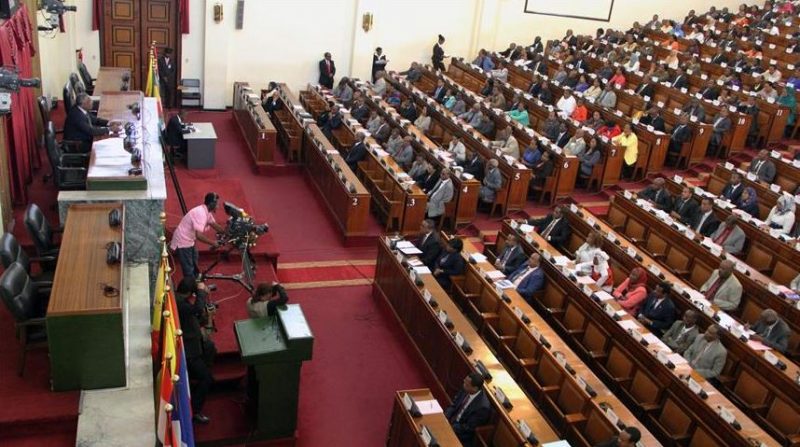
The state of emergency law was introduced in February in response to widespread protests in Oromia and Amhara regions of Ethiopia.
The law had given the military extraordinary and unconstitutional powers to stop the protests. But it made the civil unrest worse. The protests stopped only after a new prime minister, Dr Abiy Ahmed, was appointed in April who released thousands of political prisoners.
In Addis Ababa, a new day is breaking. A young man sits on the edge of the bed and puts his clothes on to play basketball. He looks sporty and full of energy. Only when he goes outside, you can see his handicap: he moves in a squat away, he uses his arms to push his legs forward. However, there is the utensil in front of the door, which enables him to live a nearly normal life: a wheelchair that he received from the wheelchair workshop of the Addis Guzo association in Berne.
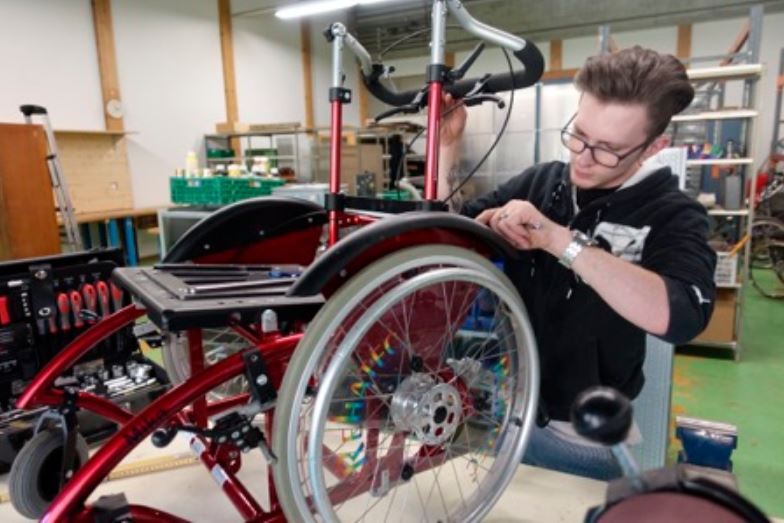
The scene comes from a video on the laptop by Bernhard Wissler, who is behind the project Addis Guzo together with his wife Christine Oberli. The association was founded in Bern in 2010 and is recognized in Switzerland as a charitable organization.
Although it was not the plan at first, Wissler built his own wheelchair workshop in Ethiopia, where used wheelchairs from Switzerland are rebuilt, adapted and repaired – the Addis Guzo project. Wissler emphasizes the support of his wife as a central element: “I would never have done it without them.” The fight with local authorities until the organization was recognized was extremely difficult. In 2012, the workshop was finally opened. “If we had known all this before – we would not have done it,” says Wissler.
But the project has not been limited to the wheelchair workshop for a long time. Meanwhile, a whole center for people with disabilities has emerged: It is sewn, candles pulled, dolls produced and pottery. Add to all this work sports and fun: a place where people can play wheelchair basketball. He would not have dreamed that the trained electronics mechanic and the occupational therapist would once set up a center for people with disabilities in Ethiopia. “We actually got into this project quite naively.”
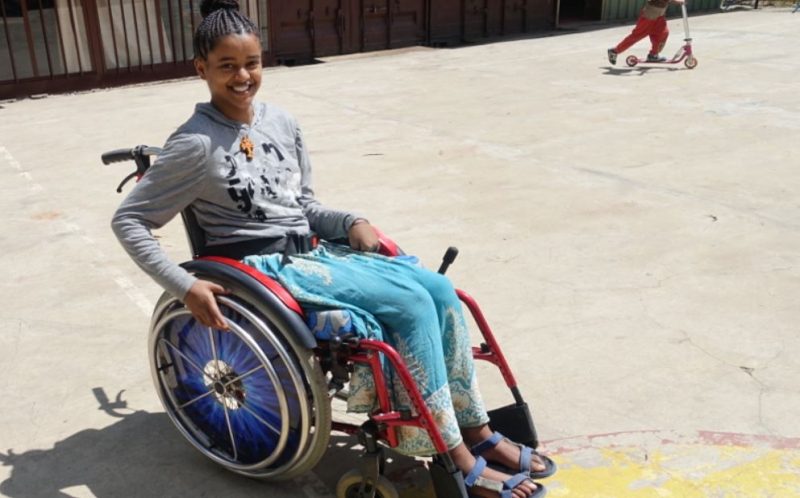
“Had we known all that before – we would not have done it.”
Would Wissler call his commitment a development aid? “That’s too strong a word,” he says. He prefers to call his project “disaster relief”, because in Ethiopia the provision of wheelchairs is catastrophic. Wissler describes the situation on the ground like this: Some people live with extreme curvatures of the spine or crawl on the ground because the legs are paralyzed. Some are so handicapped by their disability that they have to be carried around by relatives.
Addis Guzo wants to counteract these conditions with wheelchairs and therapy. What distinguishes the aid project from others? “That we not only deliver the wheelchairs, but also repair them. This is how we ensure a long-term commitment, “says Wissler. Other organizations were working with cheap materials from China that would quickly break down. To prevent wheelchairs from being resold, each product gets a number, is photographed and registered in a database. Anyone who resells spare parts quickly becomes unmasked and does not receive a new wheelchair.
Staying in Africa forever was out of the question for Wissler. “There are two worlds on a planet for me,” he says. From the beginning, it was the plan to hand over the center to a local project manager. The center is now running autonomously with the support of Wissler and Oberli from Switzerland. In Interlaken, Wissler has set up a workshop with the newly founded Rollaid association and the partner company Qualifutura, which collects, repairs and sends wheelchairs and spare parts to Ethiopia. Recycling has become a kind of passion for Wissler: almost all the material in the workshop is second-hand.
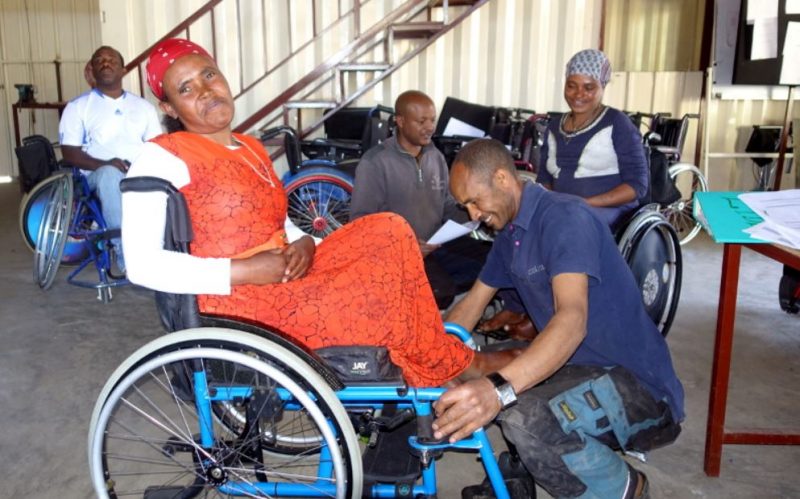
A lot of material has already accumulated in Interlaken. The only electrical parts are the robust traction devices. Consciously no electric wheelchairs are sent to Addis Ababa, because there would be a lack of funds to repair the defective electronics. Only those who have to travel a long distance to work receive such a luxurious traction device. Finally, what does Addis Guzo actually mean? Wissler smiles. It is an expression in Amharic, a language of Ethiopia. It means «new journey» or «new journey».Â
Author: Céline Rüttimann
This story was originally published on Der Bund
A British citizen released last week after being imprisoned on death row in Ethiopia said he only found out that he would be freed after a government official commented on an appeal on Facebook.
Andargachew, known as Andy, said he found out he would be released after Ethiopia’s attorney general responded to a Facebook appeal page, saying he would be pardoned. “It’s very strange,â€� said Tsege. “I’m floating. It’s a feeling of unrealness.â€� […] READ THE FULL STORY HERE
BBC – Esayas Jira has been voted in as the new head of Ethiopia’s Football Federation (EFF), following a long and protracted presidential election.
The EFF presidential elections have been beset with problems and have been postponed by Fifa on four occasions.
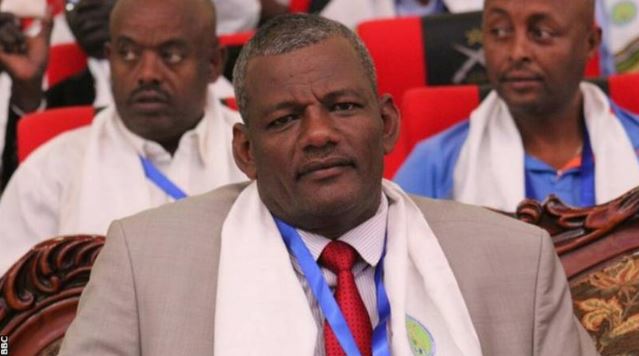
The 46-year-old Esayas beat three other candidates for the top job, winning 87 of the 145 votes from the General Assembly in Semera.
He was able to run as a candidate after receiving backing from the Oromia region, and secured a big lead over his closest challenger, Teka Assefaw, to seal the victory.
“I am so overjoyed. After a long, overdue and rocky journey we put an end to this nightmare. I am just elated,” Jira told BBC Sport.
In the first poll on Sunday 3 June, Jira beat Assefaw, outgoing president Juneidi Basha, and the outsider Tesfaye Kahesaye – but a FIFA representative deemed the election illegitimate after Jira failed to win a majority vote.
In the re-run later in the day, Jira secured a landslide victory over Assefaw as Kahesaye and Basha resigned their candidatures.
The election took eight months to conclude, after Fifa ordered Ethiopia to make changes to its electoral process in a bid to bring it in line with FIFA statutes.
Jira has worked as a football administrator for the last 20 years, and most recently has been working as general manager at Ethiopian Premier League outfit, Jimma Aba Jifar FC.
(BBC) – Ethiopia’s council of ministers has approved a draft law that would bring an early end to the six-month state of emergency imposed in February.
The government said law and order had been restored in the country.
The three years of deadly protests by the country’s two largest ethnic groups – the Oromo and the Amhara – appear to have come to an end.
Thousands of political prisoners have been released and other reforms promised.
The draft will be sent to parliament which is expected to endorse it as all MPs are from the governing party.
The move to lift the state of emergency two months early shows how far Ethiopia has come since the new Prime Minister, Abiy Ahmed, came to power, says BBC World Service Africa Editor, Mary Harper.
But the situation remains precarious, our correspondent adds.
Millions of Ethiopians have not benefited from the country’s impressive economic growth and the political arena has, for years, been dominated by a tiny elite.
A number of grievances have driven popular protests throughout Ethiopia over the last three years.
Opposition groups want the governing Ethiopian People’s Revolutionary Democratic Front to allow the opposition to operate freely.
Many Oromos feel that despite being the country’s largest group, they have been marginalized politically, economically and culturally for years.
The U.S.-based Oromo Media Network (OMN) has sent a team to Addis Ababa, Ethiopia, to explore the possibilities of opening a branch office there, according to Addis Standard.

OMN will be the first Ethiopian media in exile to respond to Prime Minister Abiy Ahmed’s call for Ethiopians to return to their country. Read the full report here.






